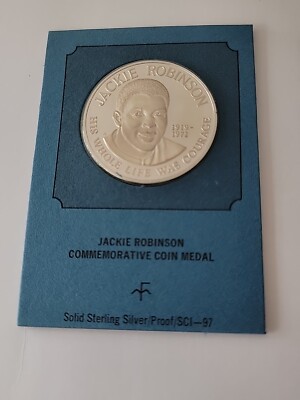Jackie Robinson: Pioneering Change in American Sports

Introduction
Jackie Robinson is a name synonymous with courage, tenacity, and groundbreaking achievement in the realm of sports and civil rights. As the first African American to play in Major League Baseball (MLB) during the modern era, his debut with the Brooklyn Dodgers in 1947 marked a pivotal moment in both sports and social history. Robinson’s journey and legacy continue to resonate, reminding us of the ongoing struggle for equality and social justice in America.
Robinson’s Early Life and Career
Born on January 31, 1919, in Cairo, Georgia, Jackie Robinson faced racial discrimination from an early age. Despite these challenges, he excelled in multiple sports at UCLA and went on to serve in the U.S. Army during World War II. Robinson’s professional baseball career began in 1945 with the Kansas City Monarchs of the Negro Leagues. His exceptional talent caught the attention of Brooklyn Dodgers’ general manager Branch Rickey, who saw not only his athletic prowess but also his potential to break the color barrier in baseball.
Breaking Barriers in MLB
On April 15, 1947, Jackie Robinson made history by stepping onto the field at Ebbets Field, becoming the first African American player to compete in MLB since the 1880s. His inaugural season was fraught with challenges, including hostility from opposing players and fans. Despite the pressure and adversity, Robinson ended the season with a .297 batting average, earning the Rookie of the Year award. His commitment to civil rights extended beyond the diamond, as he became a prominent figure advocating for racial equality.
Impact on Civil Rights and Legacy
Jackie Robinson’s influence reached far beyond sports. His courage on and off the field inspired countless others in the civil rights movement. In 1964, he was awarded the Spingarn Medal from the NAACP for his outstanding achievements. Over the years, his advocacy helped lay the groundwork for future generations of athletes to not only excel in their sports but to also use their platforms to speak out against injustice.
Conclusion
Jackie Robinson’s legacy continues today, reflected in the way sports are played and perceived in a diverse society. His story is commemorated every April 15th, known as Jackie Robinson Day, when all MLB players wear his number 42 to honor his contributions to baseball and social justice. As we move forward, Robinson’s journey serves as a reminder of the importance of resilience in the face of adversity and the ongoing fight against systemic inequality. His life and legacy will forever remain a beacon of hope and change for generations to come.









